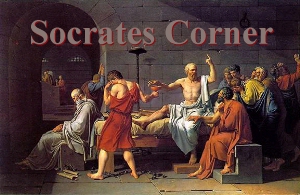Russiagate Reaches Climax: Trump + Russia = No Collusion—Part 1
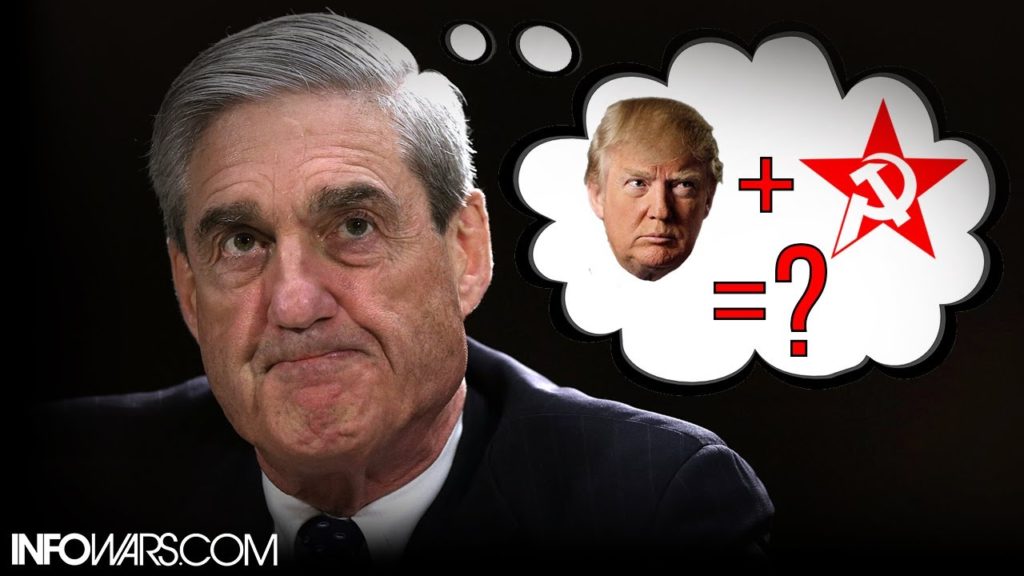
“[T]he investigation did not establish that members of the Trump Campaign conspired or coordinated with the Russian government in its election interference activities.”
“The evidence does not establish that the President was involved in an underlying crime related to Russian election interference.”
~Special Counsel Robert Mueller
Background to Robert Mueller
For nearly two years, the United States was embroiled in an extensive and intrusive period of investigation into the Presidential campaign of Donald J. Trump. The investigation sought to uncover any evidence of the Trump campaign actively colluding with the Russian government to meddle in the results of the November 8, 2016 Presidential Election that saw Donald Trump defeat Hillary Clinton 304 to 227 in Electoral votes. The investigation was headed by Robert Mueller, a registered Republican and former FBI Director during both terms of the George W. Bush and the first term of Barack Obama’s Presidency. Mueller was appointed as Special Counsel by Deputy Attorney General Rod Rosenstein on May 17, 2017, following former Attorney General Jeff Sessions’ shocking recusal from the investigation. The day prior to Mueller’s appointment as Special Counsel, Mueller had interviewed with President Trump to reprise his role as the Director of the FBI, but was ultimately rejected. Rosenstein drafted a letter to officially appoint Mueller as Special Counsel on May 18, granting him full oversight and unlimited resources by the Department of Justice to investigate “any links and/or coordination between the Russian government and individuals associated with the campaign of President Donald Trump, and any matters that arose or may arise directly from the investigation.” The appointment initially garnered wide-spread support from both an ensemble of Republicans and Democrats.
But where people like Senate Minority Leader Chuck Schumer viewed Mueller as the “right man for the job”, many expressed concerns regarding Mueller’s appointment and connection to former FBI Director James Comey, his best friend. “The federal code could not be clearer—Mueller is compromised by his apparent conflict of interest in being close with James Comey. The appearance of a conflict is enough to put Mueller in violation of the code. … All of the revelations in recent weeks make the case stronger,” argued Representative Trent Franks of Arizona. Mueller worked with 18 other investigators, including James L. Quarles and Aaron Zebley, colleagues of his from the Wilmer Hale law firm. Throughout the investigation, Mueller was criticized heavily for the biased make-up of his legal team, with many conservatives backing behind President Trump’s “13 Angry Democrats” disparagement. This frustration was stoked by Mueller’s controversial decision to use an informant in the investigation of Russian meddling, deemed as an act of politically motivated espionage against Trump.
By June 18, 2017, the investigation shifted to include allegations of President Trump obstructing justice. President Trump’s attorney, Jay Sekulow expressly denied the President being under investigation for obstruction in any way. Mueller’s investigation was known for its wide-reaching and invasive series of charges against key individuals that assisted Trump during the 2016 election. Primary individuals that Mueller and his team repeatedly targeted for information were: Trump’s former campaign chairmen Paul Manafort and Roger Stone, Trump’s former lawyer Michael Cohen, former White House National Security Adviser Michael Flynn, campaign co-chairman Rick Gates and author Jerome Corsi. Each of the individuals were charged with crimes—tax evasion, lying under oath, money laundering, and bank fraud—all crimes that were either completely unrelated or inconsistent with the investigation’s focus: Trump-Russian collusion. Nearly every suspect’s life was ruined or drastically altered as a result of Mueller’s targeted investigation, and at many times wrongfully convicted people of crimes that the Special Counsel forced them to commit (i.e. forcing key witnesses to lie via perjury traps due to scant memory or fixed questioning).
With 22 months, 19 lawyers, 40 FBI agents, 2,800 subpoenas, 500 search warrants, and 500 witnesses, what principled findings has the Special Counsel’s investigation actually uncovered? With the investigation coming to a seemingly anti-climatic end on March 24th, confirming what many already knew, in that there was no collusion between the Trump campaign and the Russian government, many people question: was a 2-year investigation really worth it? Shortly after its release to the Department of Justice, newly appointed Attorney General William Barr analyzed the nearly 400-page investigative document and summarized its principled findings in 4 pages, revealing that there was no wrong-doing on behalf of President Trump coordinating with the Russian government to meddle in the 2016 election. The following section explores William Barr’s summative examination of the Mueller report.
William Barr’s analysis of the Mueller Report
William Barr begins by addressing the Republican and Democrat heads of the Senate Judiciary Committees, revealing the framework and principled conclusions made by Robert Mueller’s official “Report on the Investigation into Russian Interference in the 2016 Presidential Election.”
“The Special Counsel’s report is divided into two parts (Russian interference in the 2016 election and obstruction of justice). The first describes the results of the Special Counsel’s investigation into Russia’s interference in the 2016 U.S. presidential election. The report outlines the Russian effort to influence the election and documents crimes committed by persons associated with the Russian government in connection with those efforts”, Barr explains.
It is early on that Barr makes known the indisputable conclusion to Mueller’s investigation: that there was no collusion between members of Trump’s campaign and the Russian government to influence the 2016 Election. He states, “The Special Counsel’s investigation did not find that the Trump campaign or anyone associated with it conspired or coordinated with Russia in its efforts to influence the 2016 U.S. presidential election. As the report states: ‘[T]he investigation did not establish that members of the Trump Campaign conspired or coordinated with the Russian government in its election interference activities.’”
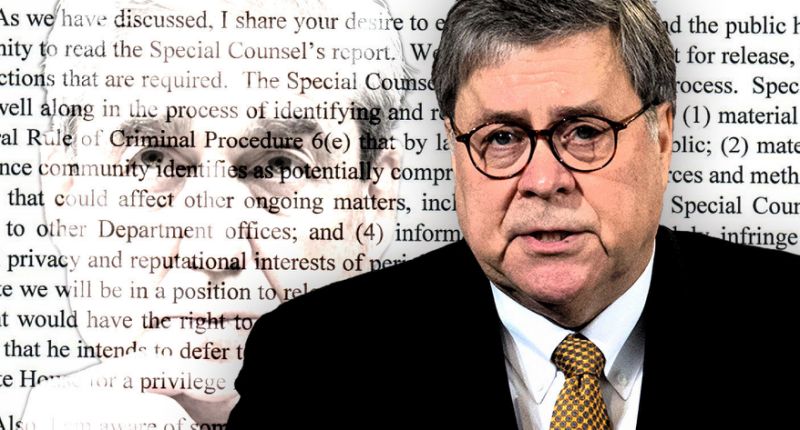
Attorney General Barr deciphering the conclusions to Mueller’s Report
The report does in fact acknowledge that the Russian organization, the Internet Research Agency (IRA), sought to hack into and influence social media accounts in the United States. In addition to this, The Special Counsel confirmed that the Russian government hackers successfully infiltrated American government computers, obtaining emails from persons affiliated with the Clinton campaign and DNC, sending this information to intermediaries like Wikileaks. But despite this activity, there was no assistance by any member of the Trump campaign to conspire or coordinate with the Russian government, despite multiple offers from Russian affiliates. Barr shifts onto the second portion of the report, examining allegations of obstruction of justice.
“The report’s second part addresses a number of actions by the President – most of which have been the subject of public reporting – that the Special Counsel investigated as potentially raising obstruction-of-justice concerns. After making a ‘thorough factual investigation’ into these matters, the Special Counsel considered whether to evaluate the conduct under Department standards governing prosecution and declination decisions but ultimately determined not to make a traditional prosecutorial judgment. The Special Counsel therefore did not draw a conclusion – one way or the other – as to whether the examined conduct constituted obstruction.”
Barr concludes that Mueller found no evidence of Trump committing a crime, but also states that this “does not exonerate him.”
Since Mueller’s team was unable to establish any legal conclusions over whether President committed any wrongdoings, it is stated that the decision to warrant if any crime was committed by Trump is left to be confirmed by Attorney General Barr. In consulting with Mueller’s team, Deputy Attorney General Rod Rosenstein, and a host of Department of Justice officials, Barr concludes that “the evidence developed during the Special Counsel’s investigation is not sufficient to establish that the President committed an obstruction-of-justice offense.”
Barr continues by stating, “In making this determination, we noted that the Special Counsel recognized that ‘the evidence does not establish that the President was involved in an underlying crime related to Russian election interference,’ and that, while not determinative, the absence of such evidence bears upon the President’s intent with respect to obstruction.” Barr explains that for the government to conclude that Trump was guilty of obstruction of justice, one would need to prove beyond a reasonable doubt that the accused person acted with corrupt intent and engaged in obstructive conduct, with verifiable evidence to prove this. Thus, Barr’s report concludes by further explaining the lack of evidence in allegations of wrongdoing by President Trump to warrant any confirmation of obstruction,
“In cataloguing the President’s actions, many of which took place in public view, the report identifies no actions that, in our judgment, constitute obstructive conduct, had a nexus to a pending or contemplated proceeding, and were done with corrupt intent, each of which, under the Department’s principles of federal prosecution guiding charging decisions, would need to be proven beyond a reasonable doubt to establish an obstruction-of-justice offense.”
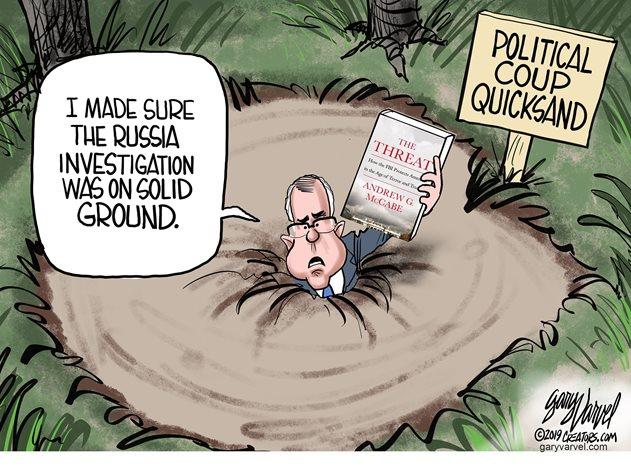
The Russian “collusion delusion” rages on
Even after Attorney General William Barr’s summary examination on the Mueller report was released, multiple Congressional Democrats have expressed high levels of dissatisfaction and disbelief with the results of the report, demanding that the full report be released. Among these disillusioned Democrats, who for the past two years exalted the Mueller investigation as trustworthy and obligatory, are:
- Chairman of the House Intelligence Committee Adam Schiff,
- Chairman of the House Judiciary Committee Jerrold Nadler,
- Congressman Eric Swalwell, and
- Congressman Hakeem Jefferies
Despite losing all face with the American public after the bombshell Mueller report they championed for the past 22 months flamed out, these Democrats still insinuate that President Trump somehow colluded with the Russian government and is guilty of criminal behavior. This, despite Barr quoting selected passages from Mueller’s own report, confirming without a doubt, that President Trump in no way colluded with the Russian government. Like sharks out for blood, these Democrats’ bloodlust blindly chases after non-existent leads into an already feckless ‘witch-hunt’ dead-end investigation, which ironically enough had far more support from partisan Democrats than Republicans.
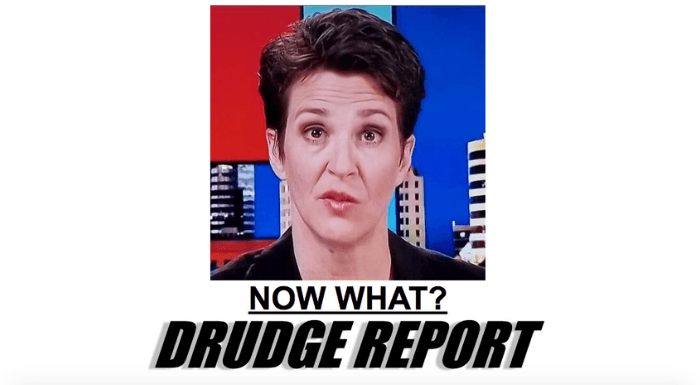
Rachel ‘Madcow’ Maddow has witnessed a precipitous decline in viewership since the Mueller Report didn’t show that Trump colluded with the Russians to cheat Hillary out of the 2016 elections. She and her guests lied for 2 ½ years to the American people.
Even sharply liberal news outlets like CNN and MSNBC have suffered some of their worst cable rating drops ever following the Mueller Report release, proving that these news organizations hyped up a false narrative for the past two years just to hold onto viewership, only to later be exposed as frauds. Fox News, on the other hand maintained stable ratings as their lead anchors: Sean Hannity, Laura Ingraham, and Tucker Carlson reported only factual findings surrounding the Mueller investigation with no fabricated hype around supposed Russian collusion that fueled the more liberal media. These “Fake News” stories surrounding hysteria over Trump’s impending impeachment and doomed Presidency were all talking points garnered by anti-Trump individuals like Schiff, Swalwell and Nadler, who were at the forefront of hyping the Russia “collusion delusion”. Despite Trump’s innocence in the controversy, the war over the Mueller report rages on, as Congressional Democrats pressure and threaten Barr to release the full 400 report.
Now only time will tell what the Democrats reaction will be after seeing the full report with their own eyes, once a redacted copy will be made public in mid-April and potential Congressional hearings surrounding the report in early May (Part 2 to come soon).
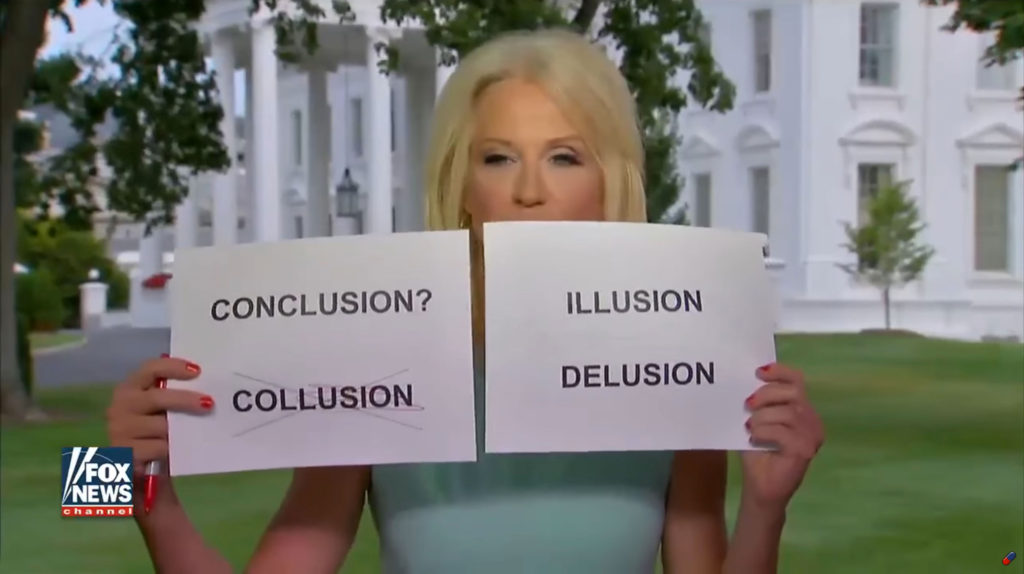
Category: Socrates Corner



